2023 Range Rover Autobiography Review: Design, Features, Performance, Price - IN PICS
)
In the 5th-gen rendition, the key focus of the design is to make it look modern without losing out on the traditional silhouette. Of course, the Rangie looks posh from every angle. It is priced in between Rs 2.39 crore to Rs 4.17 crore.
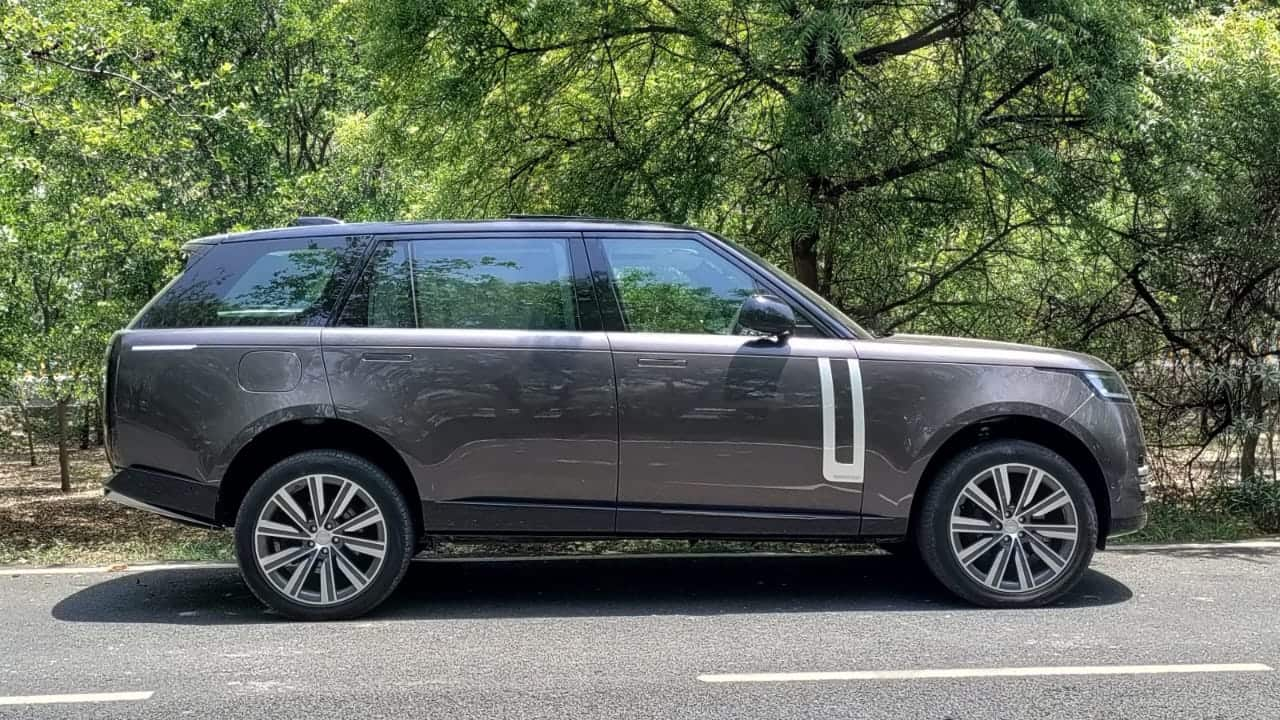
The Range Rover is now over 5 meters in length, 2 meters in width, and nearly 1.9 meters tall. The difference between the SWB and LWB version is of whopping 200 mm.
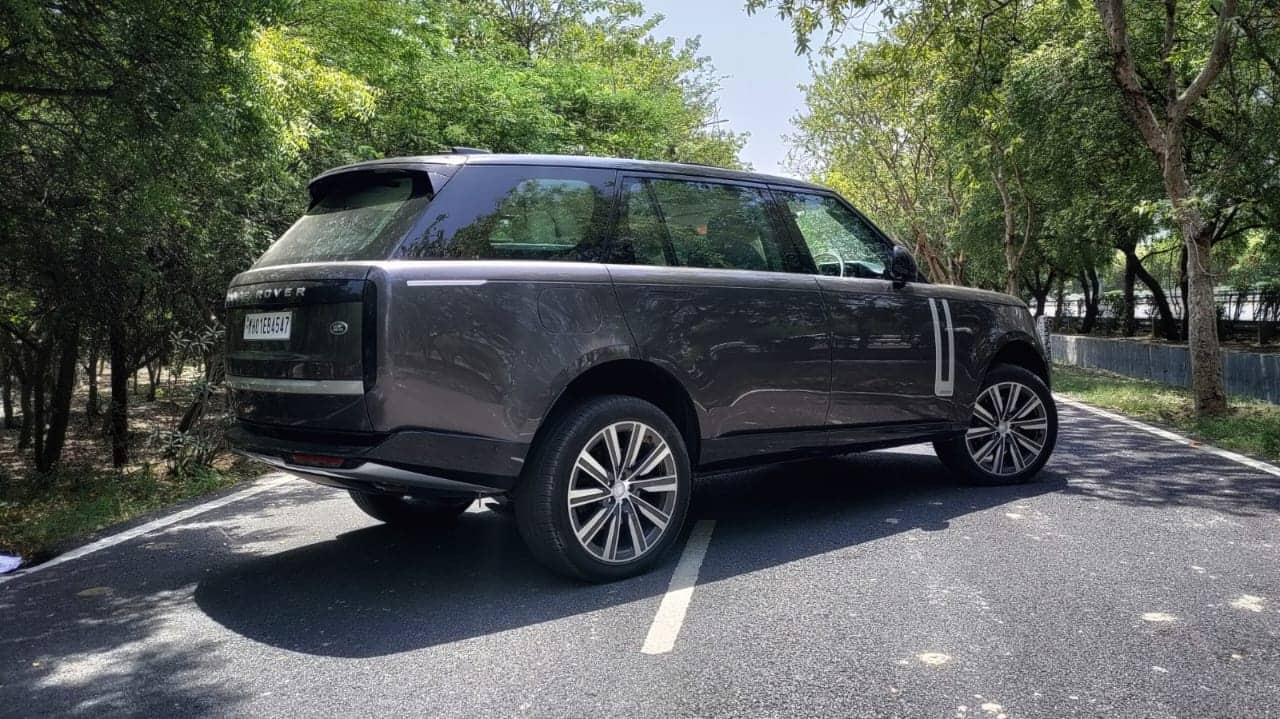
Around the tail, an important change is the new design of the tail lamps and dual-shark fins. One houses the antenna, while the other gets a camera.
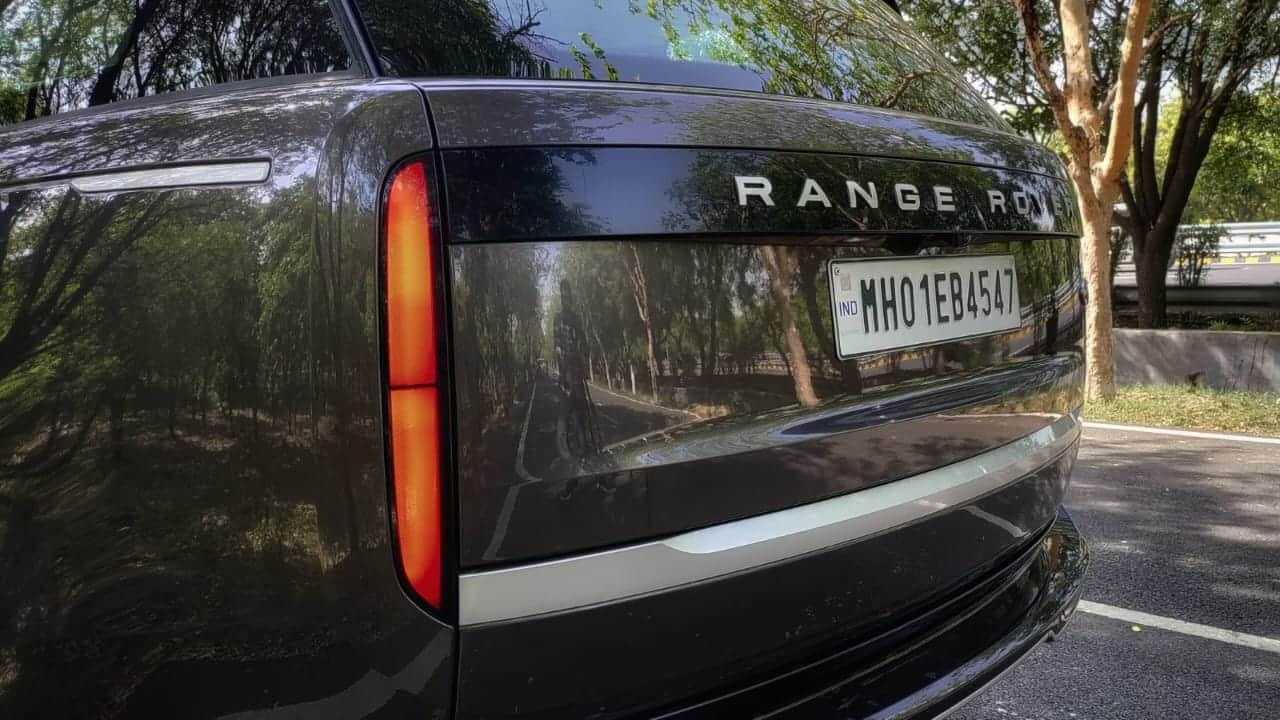
In the new avatar, these taillamps are slim and packed underneath a piano-black housing. In fact, it is tough to locate the lights in the daylight.
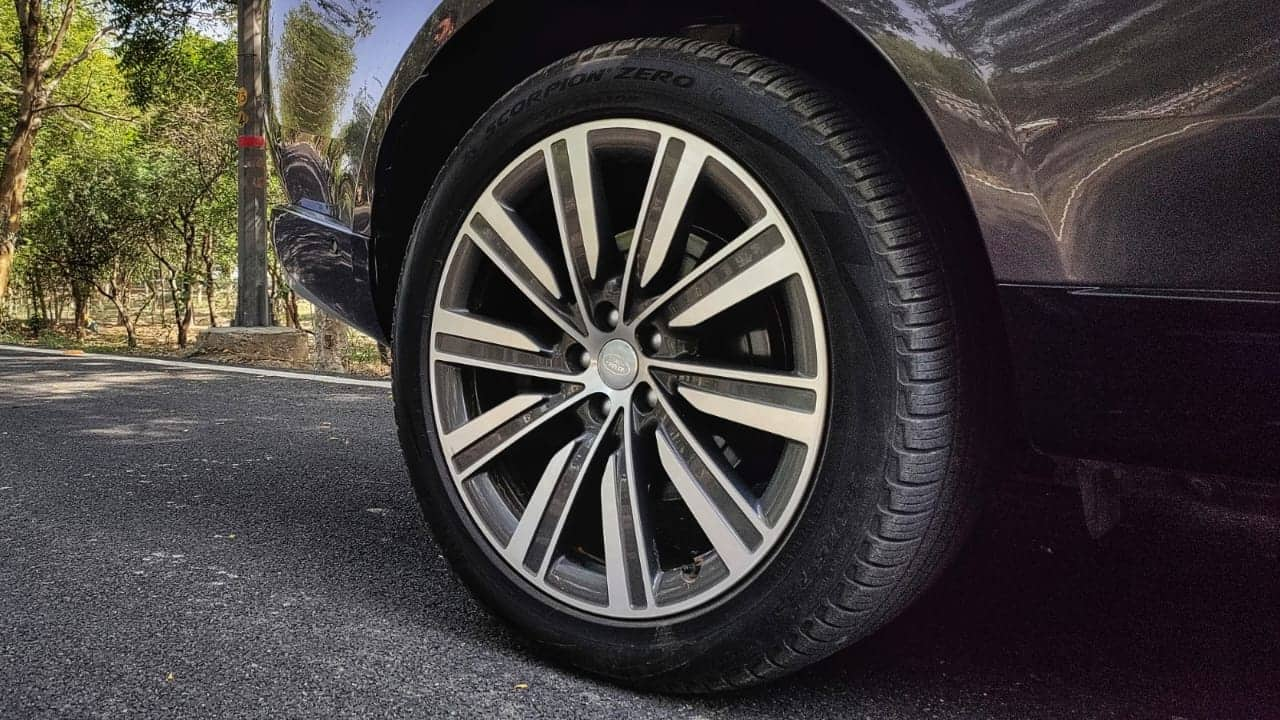
Our test car came with 22 inchers, which do not look huge by any means on this behemoth. However, aficionados can upgrade to 23-inch rims as well.

The Range Rover is available with 3 powertrain choices - 1 diesel and 2 petrol. Also, it gets air suspension and Land Rover's new Terrain Response system.
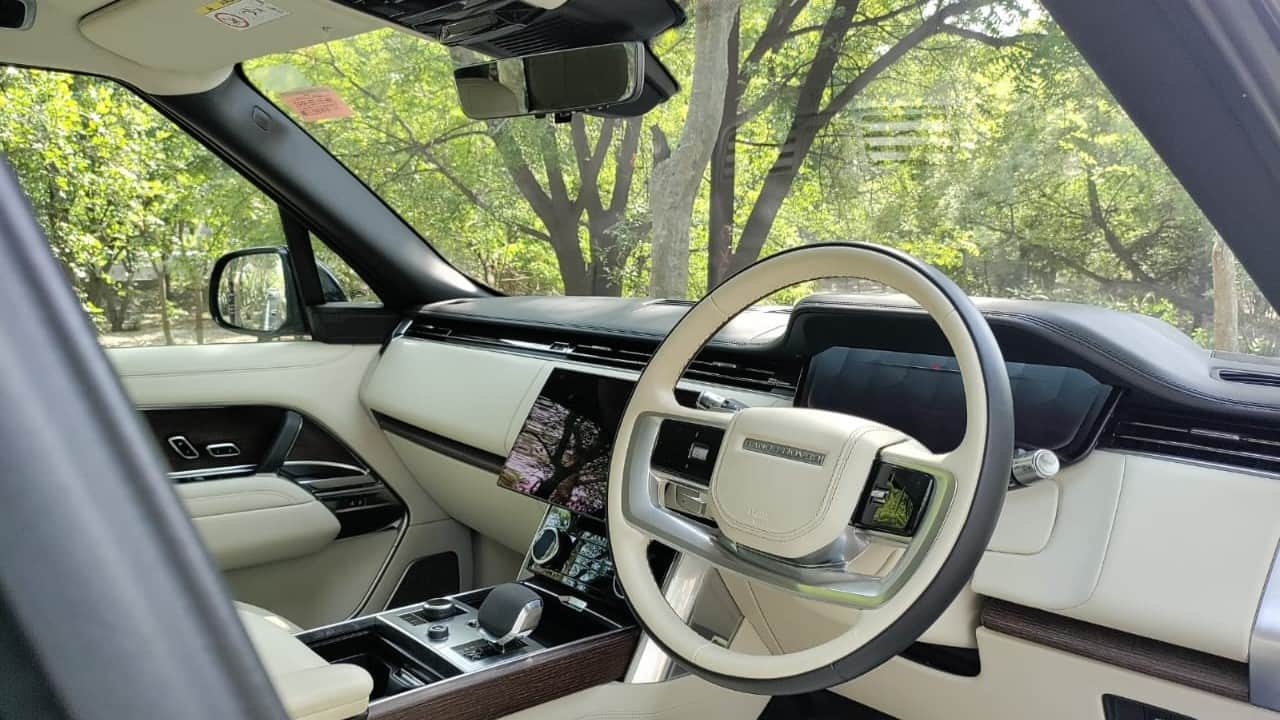
The dashboard layout is changed too, and it follows a minimalistic theme, and there aren't many buttons now.
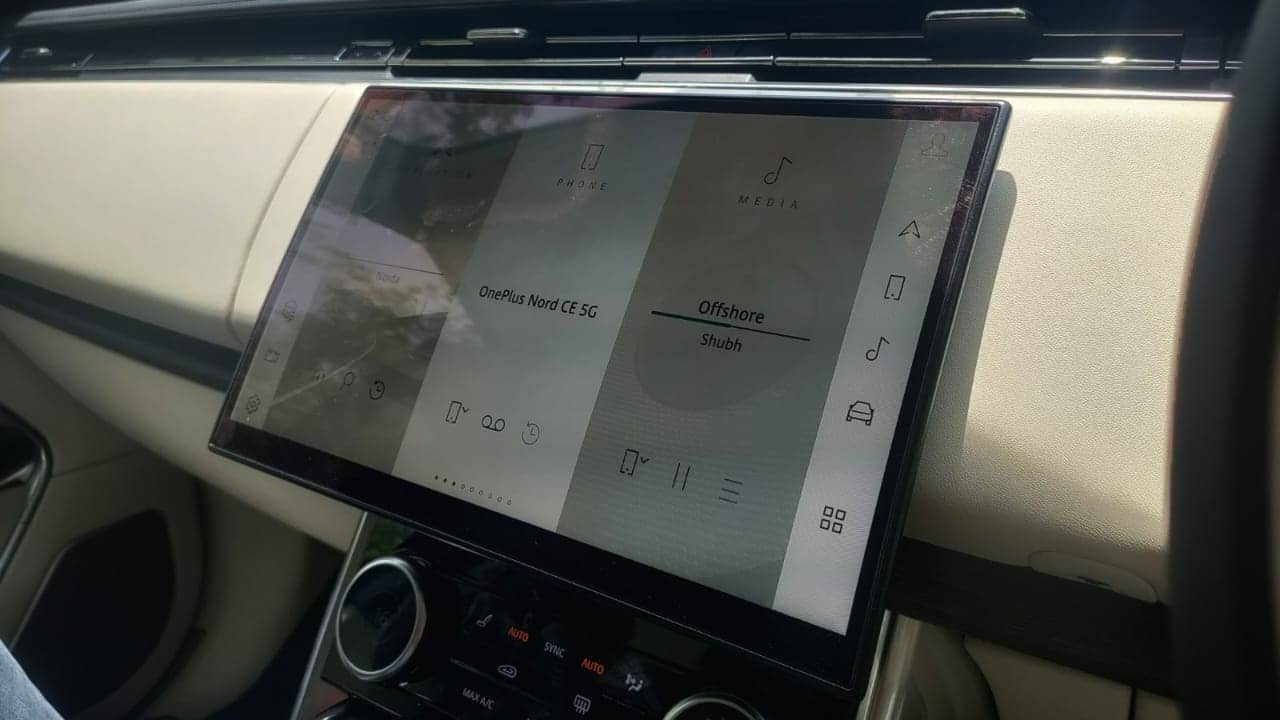
The New Pivi Pro system uses a 13.1-inch touchscreen display that offers a crisp touch response, and it can be single-handedly used for all sorts of car-based controls.
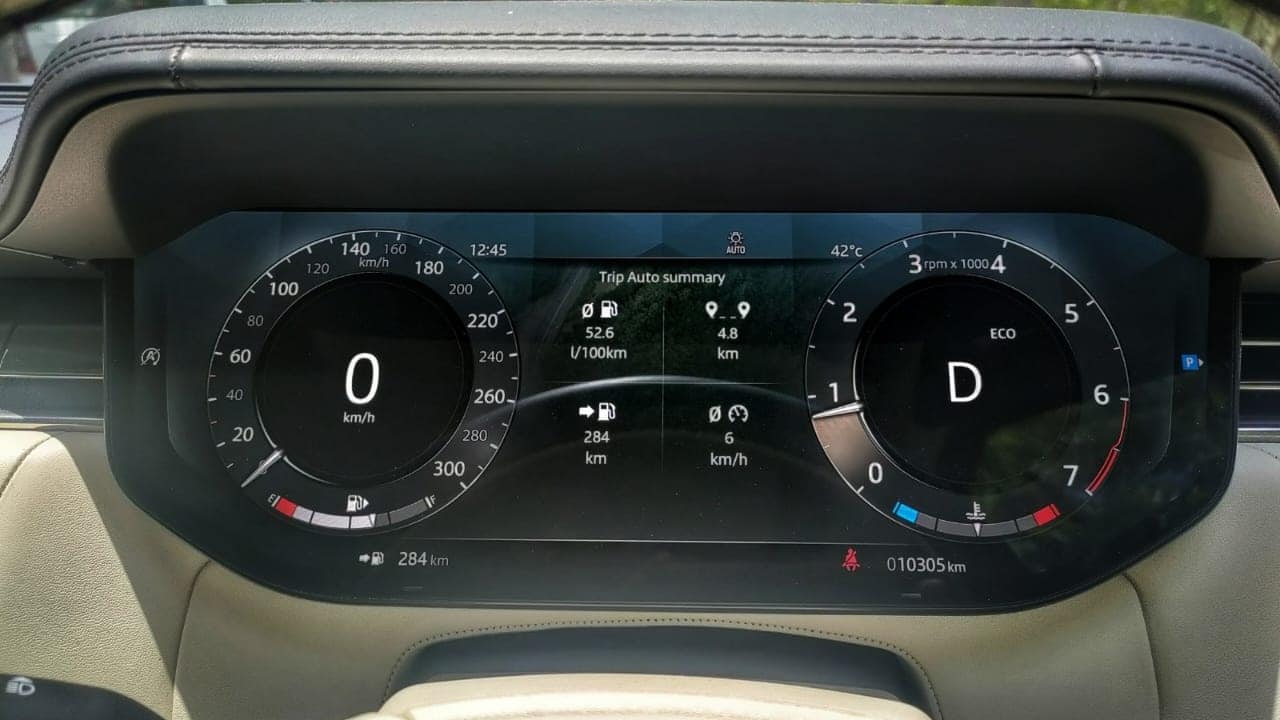
The 13.7-inch instrument cluster on the Range Rover is filled with a host of information. It is controlled by buttons offered on the steering wheel. It takes a while to figure out how it is operated.
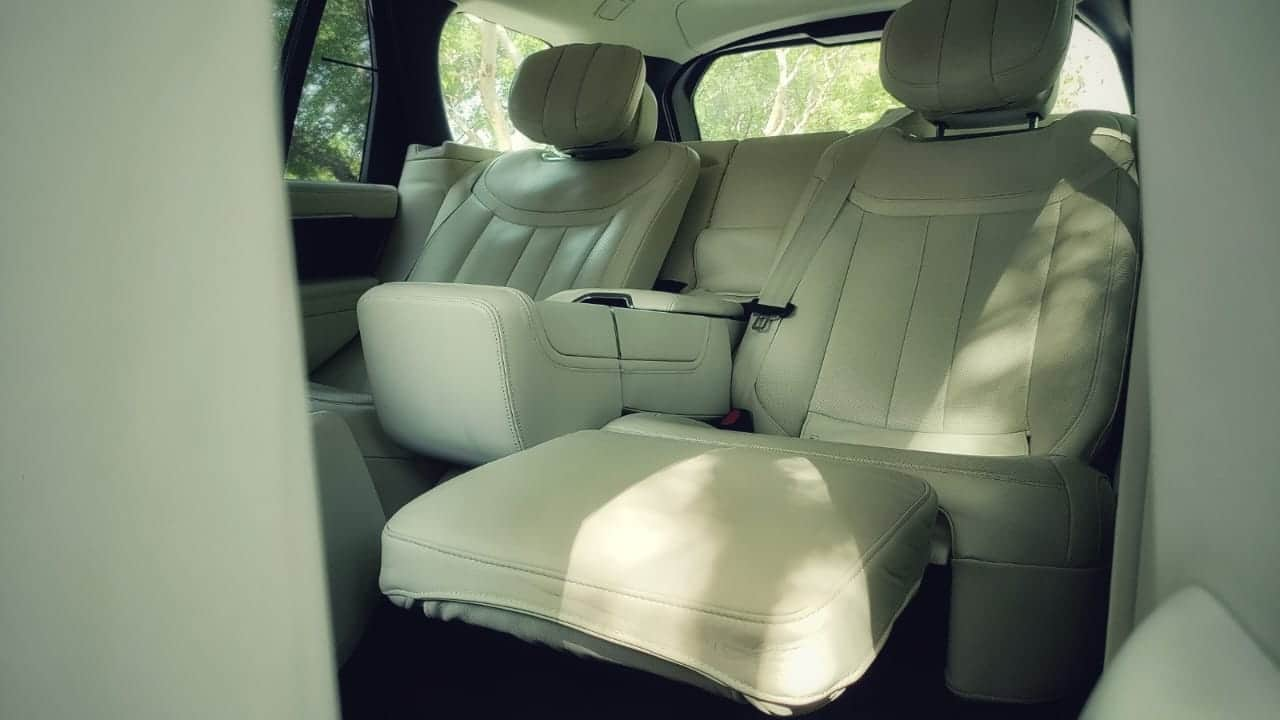
Both two- and three-row options are available, along with fully reclining second-row seats. Also, the chairs gets noise-cancelling speakers tucked in them.

